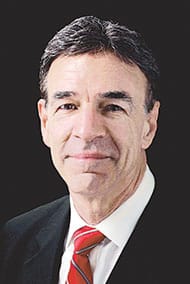
Looking at the county through a 21st-century lens, it’s difficult to imagine the time when Gwinnett was on the frontier between the European settlements to the East, and the Creek and Cherokee Indian lands to the West. AQs was the case with Walton, Hall and Habersham Counties, Gwinnett was created from land that the Georgia General assembly had acquired from the Native Americans who formerly controlled the areas.
As most people know, Gwinnett County was named after Button Gwinnett, one of Georgia’s three delegates who signed the Declaration of Independence. What isn’t so widely known is that Mr. Gwinnett never lived, or even set foot in the county that bears his name.
At the time of its creation, Gwinnett County’s population was less than 5,000, and the landscape consisted largely of forests and farmland. County population grew slowly through the early part of the 20th Century. Then the population boom hit, and Gwinnett County began the transition from farmland and forests to subdivisions and business centers. During a few years in the 1980s, Gwinnett was the fastest growing county in the nation.
One of the largest counties in Georgia, Gwinnett offered an abundance of land, proximity to Atlanta and a road system that made travel relatively convenient. Many of those attributes still exist, but with a population approaching 1 million, travel has become more associated with traffic than convenience.
Unfortunately, traffic and congestion are the prices of success. If Gwinnett County didn’t have so much to offer, it wouldn’t have become such a popular place to live, in which case, it wouldn’t have continued to have so much to offer.
During 2018, the County will have even more to offer with a host of events scheduled throughout the County. A list of those events is posted on the county’s website, (https://www.gwinnettcounty.com/static/about_gwinnett/gcb2017/calendar. HTML where you’ll find information about walking and bus tours, scavenger hunts, a mass wedding, (at 1:18 PM on 1-18-18) open houses, lectures, tea parties, festivals, and parades. There’s even a Bicentennial Pool Party.
Another event that will make the bicentennial is a “torch run” that will emulate the one leading up to the Olympics. Cross country runners from area schools will run a torch from the Justice and Administration Center on a route that will take it to every city hall in the county. It all adds up to a great way to celebrate the county’s history.

